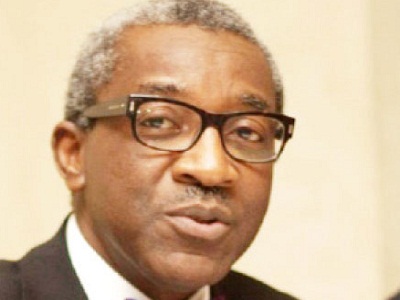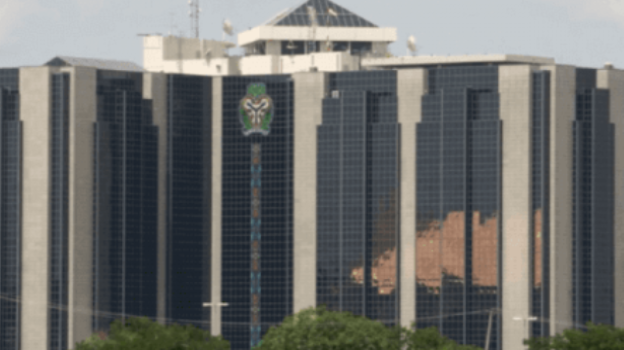General News
Protecting Telecom Infrastructure for Quality of Service

The importance of telecommunications in the national life of the country cannot be over-emphasized.
There is virtually no aspect of the ever changing economic landscape of the new digital world that telecommunications is not playing active role to enhance its service delivery, be it financial, education, agriculture, and health among others.
For telecommunications services to be delivered require building of infrastructure upon which voice, data and video services are delivered to subscribers.
In most countries, transmission infrastructure for telecommunications services such as fibre cable links and power supply are built and provided by the government, but in Nigeria case, operators are building the required infrastructure for effective service delivery.
It is indubitable fact that public power supply is almost none existence that forced operators to use generating sets to power their base stations.
Regrettably, this infrastructure has consistently become target of vandals, thieves and road construction efforts without recourse to its effect on quality of service delivery.
Against this backdrop, stakeholders in the industry are seeking for a legislation to make telecom infrastructure critical national infrastructure for it to be protected by law.
Nigeria CommunicationsWeek gathered that the industry suffers with any minor errors (technical faults, accidents, vandalisation, data recording errors, etc.) that can alter, disrupt or block the system processes unintentionally.
These disruptions not only disconnect subscribers, but could cause embarrassment to businesses and national security.
Emeka Oparah, vice president, corporate communications/corporate social responsibility at Airtel Nigeria said vandalisation of the telecom service equipment are regular occurrences. He cited the example of base station in Abia state where Airtel Nigeria lost four generators to the vandals.
The state has over the years gained notoriety for unfriendliness to the telecommunications infrastructure.
It took a more dangerous dimension in 2010 when six hapless telecommunications maintenance workers were killed in Aba, the commercial hub of the State.
The workers, members of the MTN workgroup which included two policemen were said to have gone to carry out maintenance operation at a base transmission station in Aba.
There are other challenges in the telecom sector that are inimical to investment which need to be addressed if the country will attract the desired massive investment that is coming into the ICT sector of the country’s economy.
Some of these challenges according to Gbenga Adebayo, chairman of the Association of Licensed Telecommunications Operators of Nigeria (Alton), could hinder the sustenance of the growth, if they are not nipped in the bud.
He listed some of the challenges as multiple regulation, government interference in telecom matters, multiple taxations, insufficient broadband rollout in the industry, security of infrastructure, and quality of service, inadequate power supply, and state of access roads, among others.
Adebayo called for the scrapping of all forms of levies and fees charges by various agencies of government on ‘right of way’ approvals, insisting that they are all inimical to a true regulatory framework in any society.
He also explained that capacity building is critical for the sustenance of telecom development and that more effort is needed from government to ensure that the technical manpower requirements for the information and communications technology (ICT) industry were met.
This, he said, was traceable to challenge in the socio-economic environment and the guaranteed minimum quality of lives and that the industry was loosing a number of highly trained personnel to other countries with less potential, but with better social security and standard of living and economic values, better healthcare, better education guarantees for their children, better security of lives and property as well as quality of living.
He reiterated the fact that telecommunications in Nigeria remained the most functional and reliable public social infrastructure, while calling on stakeholders to continue to do the needful to sustain the growth and stability of the telecom sector of the economy through the provision of enabling environment for investors both local and foreign.
The sector today requires massive inflow of private investment for infrastructure upgrade and expansion.
He stressed the need for government to provide the right environment that will attract serious investors which include protecting telecom infrastructure.
A study published by Technology Strategies International in partnership with BroadGroup TMT Ventures says that one of the things fuelling the growth in the Nigerian ICT sector is the imminent illumination of two undersea cables, which will increase international bandwidth dramatically.
“The improvement in international connectivity will have a major impact on business in Nigeria,” Christie Christelis, President of Technology Strategies International said.
At the other end of the spectrum, there is still huge latent demand for mobile phone services, added Christelis.
“Operators in Nigeria are experiencing similar challenges to operators in other emerging economies, with declining ARPUs as the subscriber base broadens to include poorer segments. But companies such as MTN have demonstrated that even at ARPU levels of $12 – and declining – astute operators are able to make above superior margins,” he said.
Christelis noted that there is huge momentum behind the growth, and even through the global financial crisis investors have managed to source funds for good investment opportunities in Nigeria.
Key opportunity areas identified in the report include expanding the reach of the undersea cables, building out mobile infrastructure, turning investments into fixed wireless infrastructure into sustainable businesses, expanding the retail network for mobile, fixed wireless and internet services, and in electronics manufacturing.
Christelis said that the Nigerian Government is particularly keen to promote an indigenous electronics manufacturing and is doing much to attract investor interest.
Christelis warns, however, that the Nigerian ICT sector is complex and investors must give due consideration to the characteristics of the Nigerian market when evaluating business plans.
The fact that the market is liberalized, and hence very competitive in certain segments, provides some safeguards to investors.
In fact, the ten year of telecom sector reform has brought about substantial private sector investment, increase in the number of market players, unprecedented growth in the network, expanded geographic coverage, empowerment of citizenry, employment creation and economic stimulus which should not be allowed to erode as a result of activities of unscrupulous Nigerians whose stock in trade is theft and vandalisation of telecom infrastructure.
General News
FG Deploy New Printers for Passports following Outcries from Nigerians in Diaspora

Nigerians in the diaspora have petitioned Dr. Olubunmi Tunji-Ojo, minster of Interior, over passport printing in Atlanta and New York Consulates in the United States of America.

To this effect, the minister has approved and directed the Nigeria Immigration Service (NIS) to immediately deploy new printers to the passport offices in both cities.
These printers, according to him, are ready for installation. This short-term solution, he said, aims to resolve the current challenge promptly.
In a statement, the minister said that there is a new solution being implemented as a long-term plan that will usher in a streamlined passport regime, enabling Nigerians to apply for their passports with more ease.
Part of this plan includes the activation of a Passport Personalisation Centre in Abuja, which is scheduled to start in the next few weeks while also opening up more countries for the already-deployed contactless solution.
According to Tunji-Ojo, they are working round the clock, and none of the agencies is left behind.
“At the Nigeria Immigration Service, there has been an end-to-end automation of the passport application process and the introduction of the contactless application process, which has since been launched in Canada,” he said.
General News
CBN’s FX Code to Boost Transparency for Launch on January 28

The Central Bank of Nigeria (CBN) said it has approved the release of the Nigerian Foreign Exchange (FX) Code and will officially launch the same on January 28, 2025.

The FX code serves as a guideline to the banking industry to promote ethical conduct of authorised dealers in the Nigerian Foreign Exchange Market (NFEM).
“The Bank will formally launch the Code at the CBN Head Office Auditorium, Abuja, on Tuesday, January 28, 2025,” the CBN said in a notice published on its website.
In a bid to strengthen the governance and transparency of Nigeria’s FX market, the CBN in November 2024 introduced revised guidelines for the Nigeria Foreign Exchange Market (NFEM).
A key feature of these guidelines requires the boards of banks, alongside their Chief Executive Officers (CEOs) and Chief Compliance Officers, to annually attest to the Nigeria FX Code of Ethics and Conduct. This attestation underscores their commitment to uphold market integrity and comply with all CBN-issued circulars and guidelines.
The revised guidelines aim to deepen the foreign exchange market following the consolidation of all official FX market windows. The circular, issued by Omolara Omotunde Duke, director of the CBN’s financial markets department, supersedes prior directives, including the operational changes announced on June 14, 2023, and earlier circulars dating back to 2017.
Under the new framework, authorised dealers must facilitate FX transactions for firms and individuals while ensuring compliance with regulations. These dealers are tasked with conducting due diligence, providing transparent pricing, and offering market access through digital solutions.
Furthermore, all legitimate FX transactions must occur exclusively through authorised dealers, while dealings with unlicensed intermediaries are strictly prohibited.
Bureaux de Change (BDC) operators are also included in the revised guidelines. Licensed BDCs are allowed to purchase FX from authorised dealers to meet customer needs, within the limits set by the CBN. Similarly, all FX transactions conducted by BDCs, International Money Transfer Operators (IMTOs), and authorised dealers must adhere to the terms of their licenses and the Nigeria FX Code.
General News
Visa, Moniepoint Join Forces to Accelerate Financial Inclusion in Africa

Moniepoint Inc, one of Nigeria’s leading business payments and banking services platforms, has secured an investment from Visa, a global leader in digital payments.

The investment marks an important milestone in Visa’s commitment to advancing financial inclusion and shaping the future of digital payments while fostering SME growth across Africa.
Founded in 2015 by Tosin Eniolorunda and Felix Ike, Moniepoint (formerly known as TeamApt) has established itself as a leading financial platform for Nigeria’s vast network of small and medium-sized businesses (SMEs), offering an integrated suite of services, including digital payments, bank accounts, credit, foreign exchange (FX), and management tools.
The platform processes over 1 billion transactions monthly, with total payments volume exceeding $22 billion, enabling businesses to digitize their operations and thrive in Africa’s rapidly evolving economy.
With this investment, Visa supports Moniepoint’s mission to empower African businesses, further accelerating its growth and expansion across the continent. Moniepoint’s profitable and scalable business model, alongside its strong operational and financial track record, has positioned it as a transformative force in the African fintech ecosystem.
As Africa’s Fintech landscape continues to evolve rapidly, driven by a dynamic ecosystem and a focus on bridging the financial inclusion gap, Visa has been at the forefront of this transformation, putting its expertise and resources to work in support of the growth of African Fintech startups.
Tosin Eniolorunda, Founder and Group CEO of Moniepoint Inc., said: “We are thrilled to announce Visa’s investment in Moniepoint. Visa’s backing is a strong endorsement of our vision to digitize and support African businesses at scale.
“Together, we aim to deepen financial inclusion, enabling SMEs to access the tools and resources they need to thrive in an increasingly digital economy. Given that about 83% of employment across Africa is in the informal economy, we are very keen to widen access and participation in the formal financial system and drive economic growth across Africa.”
He continued, “Visa’s expertise in global payments and Moniepoint’s proven ability to serve African businesses make this partnership an exciting opportunity in shaping the continent’s economic future even as we pave the way for a more inclusive and dynamic financial ecosystem.
“We are delighted in joining forces with Visa to enhance the digital payment infrastructure, expanding financial services, and fostering innovation in Africa.”
Andrew Torre, Regional President, Central and Eastern Europe, Middle East and Africa at Visa, added: “Moniepoint has built an impressive platform that directly addresses the needs of Africa’s SMEs, a critical segment in enabling economic development.
“By making financial services and digital payments more accessible and efficient, Moniepoint is helping transform how businesses operate in Nigeria and beyond. We are excited to support their next phase of growth and innovation.”
“Visa’s investment in Moniepoint is the latest example of our long-standing commitment to advancing digital economies in Africa. We will enable even the smallest businesses to thrive through innovative payment and software solutions that allow SMEs to scale and open new revenue opportunities, while streamlining their operations.”
Moniepoint has experienced exponential growth since its founding in 2015, with revenues increasing by over 150% CAGR in recent years. The company’s efforts to expand access to financial services align closely with Visa’s mission of enabling individuals and businesses to thrive in the global economy.
Congratulating both parties, the Nigerian Investment Promotion Commission (NIPC) celebrates this strategic investment in Moniepoint, highlighting it as proof of Nigeria’s attractiveness for investors due to its favorable business climate.
Furthermore, the NIPC praised Moniepoint as an exemplar of Nigerian excellence contributing significant value to the global financial ecosystem. The Commission emphasized its commitment to supporting investors and fostering economic cooperation in finance and technology to help Nigeria reach its full economic potential.
This partnership combines Moniepoint’s local expertise and innovative business model with Visa’s global resources and capabilities. Together, Moniepoint and Visa aim to accelerate the digital transformation of African SMEs, driving financial inclusion and long-term economic prosperity.
Visa joins other notable investors including Development Partners International, Google’s Africa Investment Fund, Verod Capital, Lightrock, QED Investors, Novastar Ventures, British International Investment (BII), FMO (the Dutch entrepreneurial development bank), Global Ventures and Endeavor Catalyst in advancing Moniepoint’s mission to create a society where everyone experiences financial happiness.

 Telecom3 days ago
Telecom3 days agoSamsung Galaxy S25 Series: Redefining Smartphones with Advanced AI Integration

 News3 days ago
News3 days agoSocial Impact Champions Call for Business Investment in African Women and Girls

 Telecom3 days ago
Telecom3 days agoFG, WIOCC Sign $10M MoU to Connect 3 million Homes with Broadband Fibre Connectivity

 Telecom3 days ago
Telecom3 days agoNLC Announces Nationwide Boycott over Telecom Hike

 Telecom3 days ago
Telecom3 days agoMainOne Boosts Connectivity for West African Businesses with Equiano Cable

 Telecom3 days ago
Telecom3 days agoAll the Android updates coming to the Samsung Galaxy S25 series and more

 Telecom2 days ago
Telecom2 days agoNiMet, MTN, and Tomorrow.io Collaborate to Enhance Climate Resilience in Nigeria

 Broadcasting3 days ago
Broadcasting3 days agoNCC, NBTE to formulate IP Policy for Polytechnics, Technical Institutions














